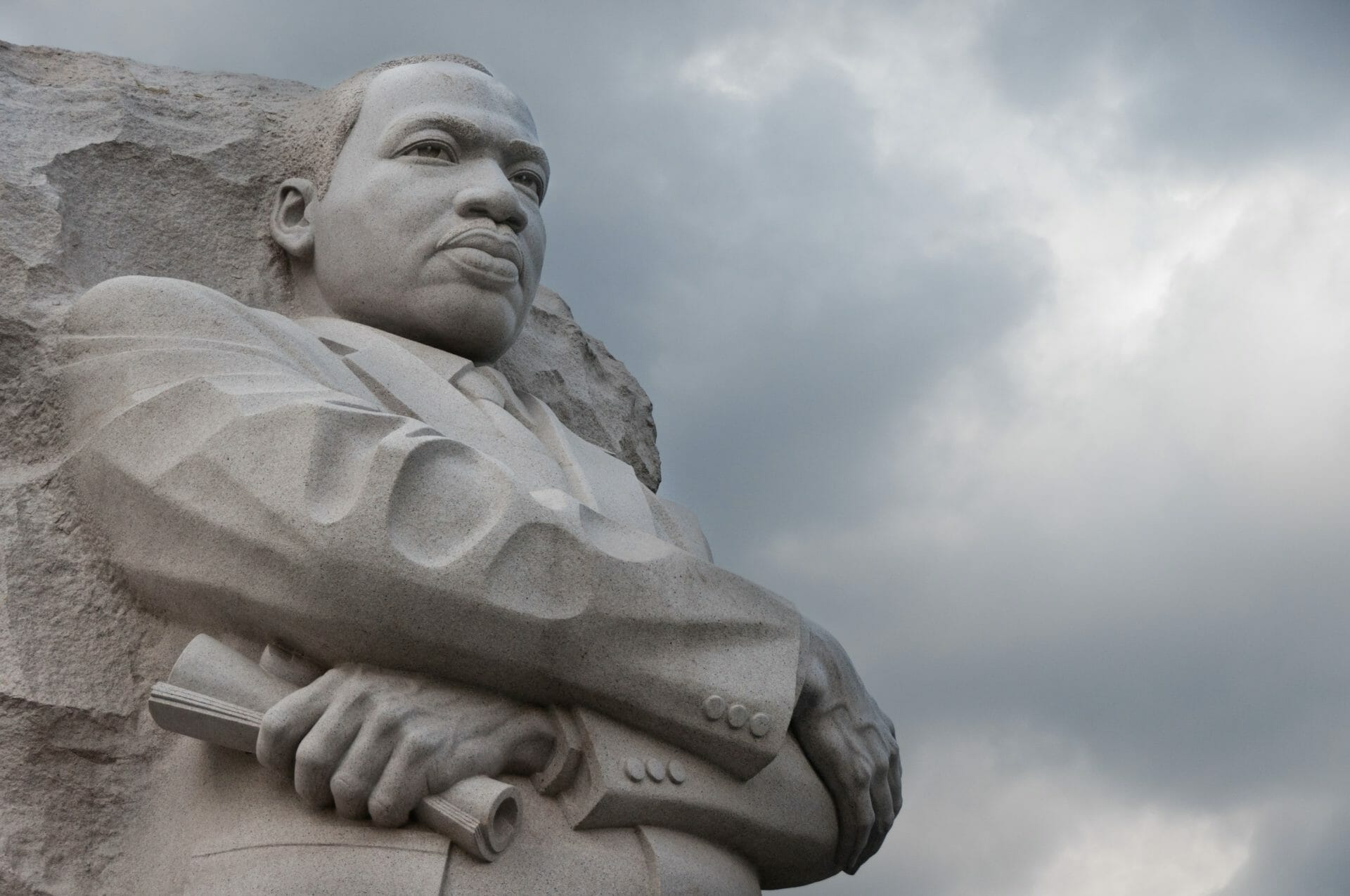
Photo by Raffaele Nicolussi on Unsplash
A letter from Paul for 1956… and 2022
Throughout the last two millennia, Christians have debated and divided over how to read the New Testaments epistles, yet these letters have shaped Christian identity in helpful ways. As a form of communication, these letters model the engagement of churches with a trusted and wise leader. For this work, Paul is sometimes considered the first “church consultant” for his letters to churches emerging throughout the Roman Empire.
Likewise, among the writings of Dr. Martin Luther King Jr., we encounter letters that speak powerfully, most notably the “Letter from a Birmingham Jail” (April 1963), one of the great writings of the civil rights movement. In King’s modern epistle, the readers encounter a critique of racism and politics still relevant decades later. And it provides a word of admonition to the church and the state alike with a clarity few, especially those in power, had at the time.
Also within King’s writings is another message in epistle form. Titled “Paul’s Letter to American Christians,” King delivered this “epistle” to Dexter Avenue Baptist Church, in Montgomery, Alabama, on November 4, 1956.
Drawing upon the form of the Pauline epistle, King pictured himself as the recipient earlier that week of an epistle from Paul and written in Greek! He shared this word from Paul to twentieth-century Christians living in the United States, a message shared well beyond just those gathered at Dexter Avenue. Just as Paul’s letters circulated well beyond the given first-century church named in an epistle, this word was meant for Atlanta, Omaha, Seattle, Anchorage, Detroit, Trenton, Reno, and other places where American Christians gathered. Further, King intended these words to apply equally to churches in the North and South alike, for King felt that all US citizens, particularly the followers of Christ, needed the wisdom of “Paul’s Letter to the American Christians.”
In his sermon, King followed the literary form of an epistle, beginning with an opening greeting and then a word of thanksgiving. In King’s mind, Paul would give praise to the scientific breakthroughs in mid-twentieth-century America simply unimaginable in the first century. Then the letter pivots to the teaching part of the epistle: “But America, as I look at you from afar, I wonder whether your moral and spiritual progress has been commensurate with your scientific progress. It seems to me that your moral progress lags behind your scientific progress.”
Readers in 2022 have the dual task of hearing King’s words to the Montgomery faithful and acknowledging how in need of this word we are as well. The work of civil rights is far from over, and the past few years in the United States have demonstrated deep rifts in the way our politics, economics, and society function.
Delivered in late 1956, this sermon in epistle form came eleven months after the Montgomery Bus Boycott challenged the segregation laws following Rosa Park’s steadfast refusal to comply with the bus system’s racist seating policies. In the following months, segregation was still entrenched in the bus system, for those who opposed this change were often the people in control of local and state governments and people who employed violence and threats of violence to maintain Jim Crow laws. Many citizens did not take sides, yet their silence and inaction contributed to the continuance of this unjust bus seating policy. For their efforts, King and other boycott leaders would receive death threats, litigate court injunctions filed by the city of Montgomery, and even indictments for King and more than eight other leaders for “conspiracies that interfered with lawful business.”[i]
The way to change was slow, particularly when navigating the courts to seek a ruling on the matter. In early 1956, a lawsuit (Browder v. Gayle) proceeded through the court system, culminating with the Supreme Court affirming the lower court ruling on November 13, 1956. On December 20, 1956, the court ruling took effect, and King called for an end to the boycott.
While America would hail its progress and high virtue among the nations throughout the Cold War era, the desegregation of busing took years to achieve, and even then the margin of victory was slim, considering what more awaited in the fight for civil rights.
In his sermon, King observed, “Through your scientific genius you have made of the world a neighborhood, but through your moral and spiritual genius you have failed to make of it a brotherhood.”
King suggested that Paul would be quick to admonish American Christians to conform no longer to the temptation of capitalist gain. King suggested that Paul would say, “I am afraid that many among you are more concerned about making a living than making a life. You are prone to judge the success of your profession by the index of your salary and the size of the wheel base on your automobile, rather than by the quality of your service to humanity.”
King saw so many still resistant to a fair and just society. He called Protestants and Roman Catholics to an ecumenism and unity that works for the greater good of society. Turning away from the disputes and disagreements internal to churches and ecclesiastical structures would provide more focus on and energy toward turning the tide of those who work to keep society segregated and unjust. King preached, “So I would urge each of you to plead patiently with your brothers, and tell them that this isn’t the way. With understanding goodwill, you are obligated to seek to change their attitudes. Let them know that in standing against integration, they are not only standing against the noble precepts of your democracy, but also against the eternal edicts of God himself.”
As the years went on, King’s incisive word for America and his fellow Christians would only dig deeper into the moral failings of political and social claims to already be a just society or the shining exemplar of democracy. King would call out America and the church faithfully, whether from the pulpit in Montgomery, from the steps of the Lincoln Memorial, from a jail cell in Birmingham, from the stage of the Nobel Prize award ceremony—or on the eve, fateful as it turned out to be, just before joining arm in arm with striking sanitation workers in Memphis. His voice kept strong, for he knew that the moral stance must be stronger than any claims to greatness that forgot or denied true freedom and dignity for all.
Readers in 2022 have the dual task of hearing King’s word to the Montgomery faithful and acknowledging how in need of this word we are as well. The work of civil rights is far from over, and the past few years in the United States have demonstrated deep rifts in the way our politics, economics, and society function. And the slow gradualism approach taken by the many leaders then (and now) to social justice hobbles the church from embodying the morals King called for in this sermon. This epistle to the 1950s still indicts American Christians.
Ever true to the epistolary form, King ended this sermon with a word of farewell and benediction from his imagined Paul: “I must say goodbye now. I hope this letter will find you strong in the faith. It is probable that I will not get to see you in America, but I will meet you in God’s eternity. And now unto him who is able to keep us from falling, and lift us from the fatigue of despair to the buoyancy of hope, from the midnight of desperation to the daybreak of joy, to him be power and authority, forever and ever. Amen.”
Rev. Jerrod H. Hugenot is associate executive minister, American Baptist Churches of New York State.
The views expressed are those of the author and not necessarily those of American Baptist Home Mission Societies.
[i] King’s memoir of the boycott is Stride toward Freedom (Boston: Beacon, 1958).



